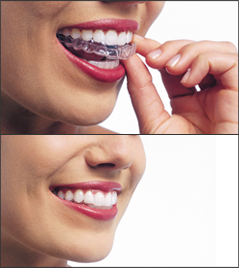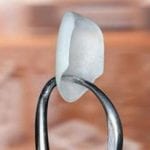I told a friend the other day that I wish I could afford Invisalign. I’ve spent a lifetime embarrassed about my teeth. She sent me this link to a company called Orthly. It looks like Invisalign, but it’s 70% cheaper. I just want to make sure it’s safe to do it and it’s similar to Invisalign.
Ellen
Dear Ellen,
It sounds like you have a friend who cares about you. It’s lovely to have friends like that. If you won’t hate me, I’m going to help you understand the differences taking you back to High School. Do you remember geometry class where you had similar triangles versus congruent triangles? As you recall, congruent triangles were completely equal to one another in both sides and angles. But, similar triangles were only that, similar but not equal. They had the same angles but not the same lengths.
That’s how I would describe Orthly to Invisalign. Similar but not equal. It will save you money. Unfortunately, it could also cost you some teeth.
The first thing you should know is it wasn’t founded by dentists or anyone with dental knowledge. The idea came to two students who wanted to get Invisalign but couldn’t afford it. Their company is very straightforward about that. They say, “Orthly does not practice dentistry nor do any employees in the company.” That alone wouldn’t make it dangerous. I’m sure they consulted with dentists and orthodontists as they followed through on their idea.
Where Does Orthly Fall Short of Invisalign?
The way Orthly saves money is by avoiding orthodontic appointments. You see a dentist a total of two times. They can request photos through the app, but that’s the extent of the “looking after” you get. You may think that’s no big deal, but here’s what worries me about that.
The reason dentists keep an eye on you throughout the treatment is to measure things like mobility, root absorption, periodontal disease, and oral hygiene. None of these can be tracked through a photo. If they don’t catch any one of these problems in time, it could lead to the patient losing their teeth.
Then you’re talking about a much greater expense then they’d have had if they’d done the best treatment to begin with. They’ll need to replace their teeth.
So, in your place, I’d weigh the benefits with the risks before you decide.
You could always talk to your dentist about your desire and ask if there’s a way he’d let you pay out “the real deal” in installments you can afford.
This blog is brought to you by Dr. Mike Malone.



 Porcelain veneers are tiny wafers which can completely remake your smile, changing everything about it. They can simultaneously change the shape, size, and color of your teeth, giving you a stunning smile.
Porcelain veneers are tiny wafers which can completely remake your smile, changing everything about it. They can simultaneously change the shape, size, and color of your teeth, giving you a stunning smile. 